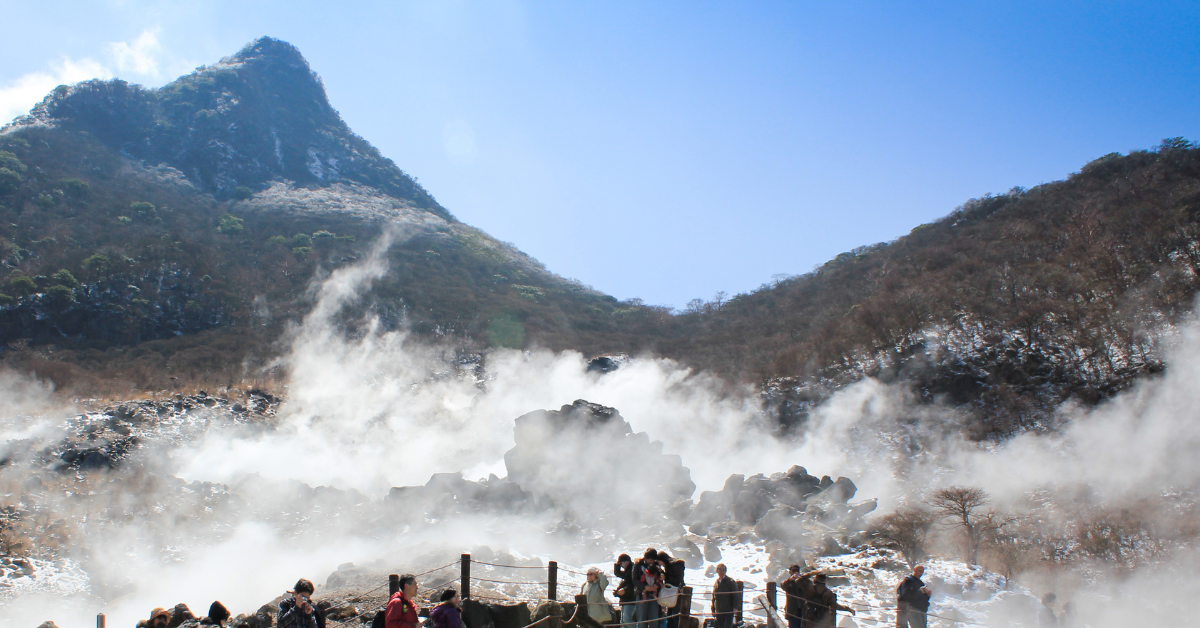Hakone is one of Japan’s most popular destinations, combining hot springs, nature, and cultural heritage. For Japanese people, it is more than just a tourist spot—it represents relaxation, tradition, and seasonal beauty. This guide explains how locals perceive Hakone, offering insights that will help foreign visitors enjoy the area more deeply.
Why Japanese People Love Hakone
One of the main reasons Japanese people value Hakone is the balance between hot springs and nature. While Japan has many onsen regions, Hakone stands out for its proximity to the capital, making it an easy weekend getaway.
Another major attraction is the seasonal beauty of the landscapes. In spring, cherry blossoms bloom; in summer, lush greenery dominates; autumn brings brilliant foliage; and winter transforms the area into a snowy wonderland.
The table below summarizes the main reasons why Japanese visitors appreciate Hakone.
| Key Attraction | Reason | Travelers’ Impressions |
|---|---|---|
| Hot springs | Variety of mineral waters with different benefits | “I feel refreshed” “My skin becomes smooth” |
| Nature | Views of Mt. Fuji and Lake Ashi | “Each season feels new and fresh” |
| Accessibility | About 90 minutes from Tokyo | “It’s easy to visit on short notice” |
Hot Spring Culture and Japanese Opinions
Onsen are a core part of Japanese culture, and Hakone is among the most iconic hot spring destinations. The variety of waters—including sulfur, chloride, and bicarbonate springs—offers different health and beauty benefits, attracting many domestic visitors.
In addition, the hospitality at traditional ryokan inns is highly valued. Guests enjoy seasonal kaiseki meals and open-air baths with views of nature, experiences often described by Japanese people as “a rare luxury away from daily life.”
The following table highlights Japanese evaluations of Hakone’s hot spring culture.
| Aspect | Japanese Opinions | Features |
|---|---|---|
| Mineral waters | “Good for health and skin” | Popular for fatigue recovery and beauty |
| Ryokan inns | “Heartfelt hospitality” | Seasonal cuisine and open-air baths |
| Onsen towns | “Walking around is part of the fun” | Local sweets and souvenir shops |
Japanese Impressions of Tourist Spots
In Hakone, visitors not only enjoy hot springs but also explore cultural and natural attractions. Sites that combine tradition and scenery are particularly well regarded by Japanese travelers.
| Tourist Spot | Japanese Opinions | Features |
|---|---|---|
| Lake Ashi | “Unparalleled view of Mt. Fuji and the lake” | Sightseeing boats and lakeside walks |
| Owakudani | “A place where you feel Earth’s power” | Famous for black eggs symbolizing longevity |
| Hakone Shrine | “Renowned as a spiritual site” | Iconic torii gate by the lake |
| Hakone Open-Air Museum | “Art and nature in harmony” | Fun for both adults and children |
| Gora Park | “Flowers and calm nature” | Seasonal blossoms and a tea house |
Seasonal Appeal of Hakone
Hakone can be enjoyed throughout the year, and its seasonal differences are a key reason Japanese people return again and again.
| Season | Japanese Opinions | Highlights |
|---|---|---|
| Spring | “Cherry blossoms are stunning and photogenic” | Cherry-lined paths near Lake Ashi |
| Summer | “Cool and refreshing as a summer retreat” | Green highlands and seasonal flowers |
| Autumn | “Autumn leaves are worth the crowds” | Gora Park and Sengokuhara |
| Winter | “Snowy open-air baths are unbeatable” | Hot springs with Mt. Fuji views |
Conclusion
For Japanese people, Hakone represents a unique harmony of nature, culture, and hot springs. The short travel time, seasonal beauty, and wide variety of attractions make it one of the most highly rated domestic destinations.
Hakone also succeeds in blending tradition with modernity. While long-standing ryokan inns and shrines remain popular, new museums and hotels continue to attract younger generations. This mix creates a sense of both nostalgia and novelty, making Hakone a place worth visiting repeatedly.
For foreign visitors, understanding how Japanese people perceive Hakone provides a deeper appreciation of the area. Soaking in an onsen, admiring Lake Ashi with Mt. Fuji in the background, and enjoying local cuisine reveals why Japanese people say they feel “truly healed” in Hakone.






